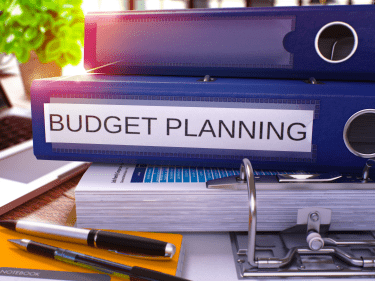Smart Saving Tips for Every Stage of Life

Smart Saving Tips for Every Stage of Life
Financial security is a critical aspect of leading a comfortable and stress-free life. However, the strategies to achieve this goal vary widely depending on one’s age, life stage, and financial circumstances. From youth to retirement, each phase demands unique savings tactics and careful financial planning. This comprehensive guide will provide smart saving tips tailored to every stage of life, ensuring you can pave your way to financial stability regardless of where you are in your journey.
Childhood and Teens – Building Foundations
Learning the Value of Money
The foundation of smart saving begins in childhood. Parents should instill the basic concept of money management by teaching their children the value of money. Simple activities like handling pocket money, doing chores for an allowance, or saving birthday money can be excellent starting points.
Opening a Savings Account
Encouraging children to open a savings account can be a significant step. It helps them understand how banks operate and the benefits of saving money in a secure place. Plus, witnessing their savings grow can be a powerful motivator.
Setting Saving Goals and Budgeting
Teens can start setting small financial goals, such as saving for a gadget, a trip, or even college.
How to Create a Budget That Works for You

How to Create a Budget That Works for You
Creating a budget that truly works for you isn’t just about numbers on a spreadsheet; it’s about shaping a financial plan that aligns with your lifestyle, goals, and priorities. In today’s fast-paced world, personal budgeting is more crucial than ever. Whether you’re saving for a dream vacation, paying off debt, or building an emergency fund, a well-structured budget can be a game-changer. Effective financial planning doesn’t follow a one-size-fits-all approach. It involves understanding your income, expenses, and financial goals. By learning how to manage your home finances efficiently, you set yourself up for long-term success and stability. This comprehensive guide will walk you through the steps to create a budget tailored to your unique needs.
Understanding Your Financial Situation
Before diving into creating a budget, take a moment to assess your current financial situation. Knowing where you stand financially is the foundation of successful personal budgeting.
Track Your Income
Start by listing all sources of income, including your salary, freelance work, side gigs, and any other streams. Note the frequency and amount of each source. Understanding your total monthly income is crucial for effective financial planning.
List Your Expenses
Next, compile a detailed list of your monthly expenses.
Top Budgeting Tips for Homeowners

Top Budgeting Tips for Homeowners
Managing a household budget can be challenging, especially for homeowners who have to juggle mortgage payments, maintenance costs, utility bills, and other expenses. Effective financial planning is essential to ensure that you can cover all your expenses without falling into debt. Here are some top budgeting tips tailored specifically for homeowners to help you navigate the complexities of household finances.
Create a Comprehensive Budget Plan
The first step in effective financial planning is creating a comprehensive budget plan. This involves listing all your income sources and expenses to get a clear picture of your financial situation. Start by categorizing your expenses into fixed and variable costs.
Fixed Costs
- Mortgage Payments: Include principal and interest payments.
- Property Taxes: Estimate based on your local tax rate.
- Homeowners Insurance: Essential for protecting your home against risks.
Variable Costs
- Utilities: Electricity, water, gas, and internet bills.
- Groceries: Weekly or monthly food expenses.
- Transportation: Fuel, public transport, and vehicle maintenance.
Miscellaneous Costs
- Maintenance and Repairs: Allocate funds for routine maintenance and unexpected repairs.
- Home Improvements: Budget for any upgrades or renovations.
By organizing your expenses, you can identify areas where you can cut back and allocate funds more effectively.
The Financial Benefits of Energy-Efficient Home Upgrades

The Financial Benefits of Energy-Efficient Home Upgrades
So, you’ve been hearing a lot about energy-efficient upgrades for your home, right? But are you still on the fence about whether they’re worth the investment? Well, let’s clear that up. Not only do these upgrades make your home more comfortable and environmentally friendly, but they also come with substantial financial benefits. Yes, you heard that right—switching to energy-efficient solutions can significantly cut down your utility bills and even increase the value of your property. In this article, we’ll dive into how you can make the best of energy-efficient home improvements and why these upgrades are financially beneficial in the long run. Plus, we’ll share saving tips to maximize your return on investment.
What Are Energy-Efficient Upgrades?
Before diving into the financial benefits, let’s clarify what energy-efficient upgrades are. Essentially, these upgrades involve making changes to your home that reduce its energy consumption without sacrificing performance or comfort. This can range from installing LED lighting and energy-efficient appliances to upgrading your insulation and windows. By making these changes, you ensure that your home uses less energy, thereby reducing your utility bills and carbon footprint.
Types of Energy-Efficient Upgrades
- Lighting: Switching to LED bulbs can save a significant amount of energy compared to traditional incandescent bulbs.
How to Refinance Your Home: What You Need to Know

How to Refinance Your Home: What You Need to Know
When considering refinancing your home, the process can seem daunting and overwhelming. However, with the right knowledge and strategy, it can be a smooth and beneficial financial move. Refinancing your home essentially means replacing your current mortgage with a new one, usually to reduce your interest rate, change the term of the loan, or tap into the equity you’ve built up over time. This process can save you money in the long run, lower your monthly payments, or even provide funds for significant expenses. But before diving into the refinance home journey, it’s crucial to understand the nuances involved in home loans and make informed decisions that align with your financial planning goals.
Understanding Home Loans
If you’re new to the world of home loans, it’s essential to gain a comprehensive understanding of how they work. For an in-depth look, check out this guide to understanding home loans, which breaks down the basics and provides valuable insights.
Why Consider Refinancing?
Refinancing your home can offer several advantages:
Lower Interest Rates
One of the primary reasons homeowners opt to refinance is to secure a lower interest rate. A reduced rate can significantly decrease your monthly mortgage payments and the amount of interest you’ll pay over the life of the loan.
A Beginner’s Guide to Understanding Home Loans

A Beginner’s Guide to Understanding Home Loans
Purchasing a home is one of the most significant financial decisions you will make in your lifetime. For most people, this journey involves taking out a home loan. Given the complexities and variety of financial products available, navigating the landscape of home loans can be daunting for beginners. This guide aims to demystify home loans, providing you with a comprehensive understanding of what they are, how they work, and how you can choose the best option for your needs.
What is a Home Loan?
A home loan, also known as a mortgage, is a financial product that allows you to borrow money from a lender to purchase a property. The property serves as collateral for the loan, meaning the lender can seize the property if you fail to repay the loan according to the terms agreed upon.
Key Components of a Home Loan
- Principal: The initial amount of money you borrow.
- Interest Rate: The cost of borrowing the money, expressed as a percentage of the principal.
- Loan Term: The period over which you agree to repay the loan, typically 15, 20, or 30 years.
- Monthly Payments: Regular payments made to the lender, consisting of both principal and interest.
10 Smart Ways to Manage Your Home Finances Efficiently

10 Smart Ways to Manage Your Home Finances Efficiently
Managing your home finances efficiently is more crucial than ever in today’s economic climate. With the rising cost of living, unexpected financial challenges, and the constant evolution of financial products and tools, having a robust plan to oversee your finances can make a significant difference in achieving financial stability and peace of mind. Whether you’re looking to save for a rainy day, reduce debt, or simply gain better control over your household budget, implementing smart financial strategies is crucial. In this article, we will explore
ten effective methods to manage your home finances efficiently, from leveraging advanced tools like personal finance management software to practical money-saving tips anyone can follow. Moreover, we’ll discuss budget-friendly security solutions that not only protect your savings but also ensure the safety of your home without breaking the bank. So let’s dive in and discover how you can take command of your financial future with ease and efficiency.
Create a Realistic Budget
The cornerstone of successful home finance management is a realistic budget. Start by tracking all your income and expenses to understand where your money is going. Categorize your expenditures into essential and non-essential items. Essential items include things like rent, mortgage payments, utilities, groceries, and transportation.
The Ultimate Guide to Home Finance Security for New Homeowners

The Ultimate Guide to Home Finance Security for New Homeowners
Becoming a homeowner is an exhilarating milestone, a symbol of financial independence and stability. However, with the joy of owning your own home comes a new set of responsibilities, particularly in managing home finance security. As a new homeowner, you’ll need to navigate through various aspects of financial planning to ensure long-term security and peace of mind. This guide is designed to help you establish a robust foundation for managing your finances effectively, protecting your investment, and ultimately enjoying your new home without any added stress. For more insights and best practices for homeowners, read on.
Understanding Home Finance Security
Home finance security encompasses all the measures you take to protect your financial interests as a homeowner. This ranges from budgeting and saving to investing in insurance and safeguarding against fraud. It’s about making informed decisions that ensure you can meet your mortgage payments, handle unexpected repairs, and plan for future expenses. For new homeowners, mastering these aspects early on can lead to significant benefits down the road.
The Importance of Financial Planning for New Homeowners
Financial planning is crucial for ensuring that you can maintain and enjoy your home without falling into financial distress.
The Role of Credit Monitoring in Home Finance Security

The Role of Credit Monitoring in Home Finance Security
In today’s fast-paced financial landscape, safeguarding your home finances is more crucial than ever. With the rise of digital transactions and increasing instances of identity theft, ensuring the security of your financial information can make a significant difference in maintaining peace of mind. One of the most effective strategies to achieve financial security is through consistent credit monitoring. Credit monitoring serves as an essential tool in detecting fraudulent activities, protecting your personal information, and maintaining a healthy credit score. It allows you to stay informed about any changes in your credit report, enabling you to take swift action when necessary. By incorporating credit monitoring into your financial routine, you not only safeguard your home finances but also enhance your overall financial well-being. And speaking of financial well-being, don’t forget the importance of emergency funds; they provide a safety net that cushions the impact of unexpected expenses, ensuring that your home finance management remains unscathed.
Understanding Credit Monitoring
What is Credit Monitoring?
Credit monitoring is a service that tracks your credit reports from major credit bureaus such as Equifax, Experian, and TransUnion. The primary purpose of this service is to alert you to any significant changes or suspicious activities on your credit report.
Best Practices for Homeowners

Best Practices for Homeowners
Owning a home is more than just a financial investment; it’s a personal milestone that brings a sense of pride and accomplishment. As homeowners, we carry the responsibility of maintaining our properties, ensuring they remain safe and secure, and planning wisely for the future. Whether you’re a new homeowner or have been one for years, it’s essential to stay informed about the best practices that can help you navigate this significant journey. From financial planning strategies to home security best practices, there’s a lot to consider to make the most out of your homeownership experience. In this article, I’ll share actionable insights on budgeting tips, financial planning, and home security best practices, ensuring you have a solid foundation to keep your home—and your finances—in top shape.
Budgeting tips can be a game-changer for homeowners looking to manage their expenses efficiently. A well-planned budget helps you allocate funds to different aspects of home maintenance, from repairs and renovations to utility bills and mortgage payments. It also allows you to set aside money for emergency situations, ensuring you’re prepared for any unexpected costs that might arise.
Here, we’ll dive into practical financial planning methods tailored for homeowners, guiding you on how to create a budget that works for your unique situation.
